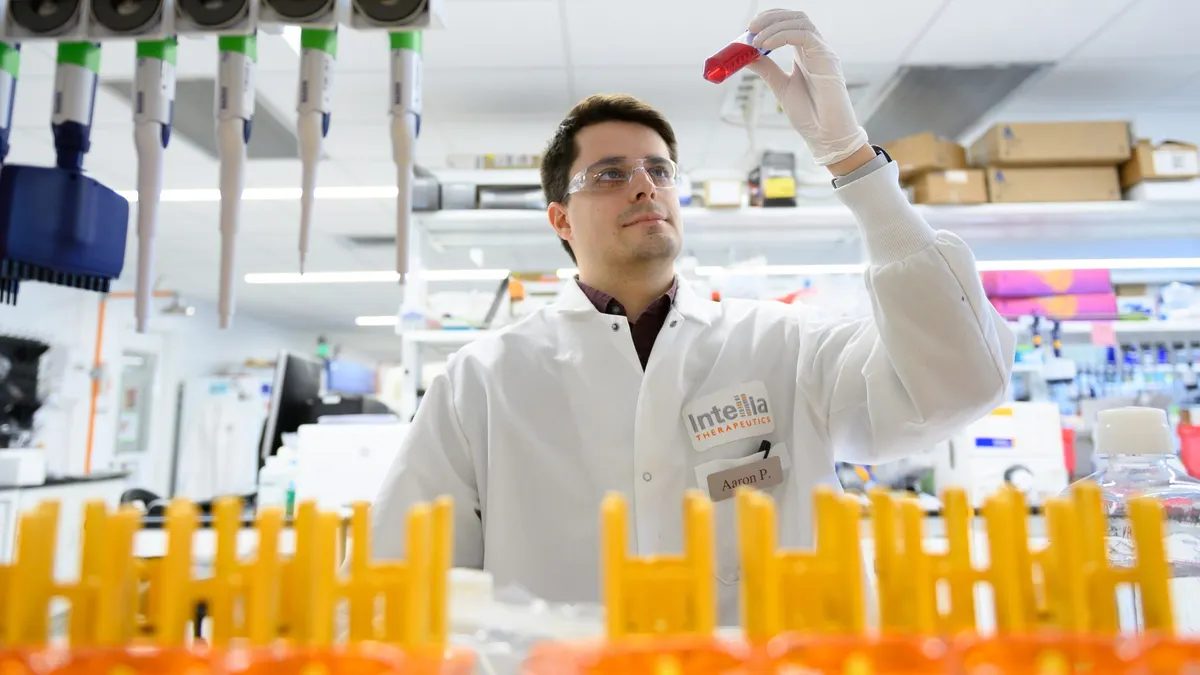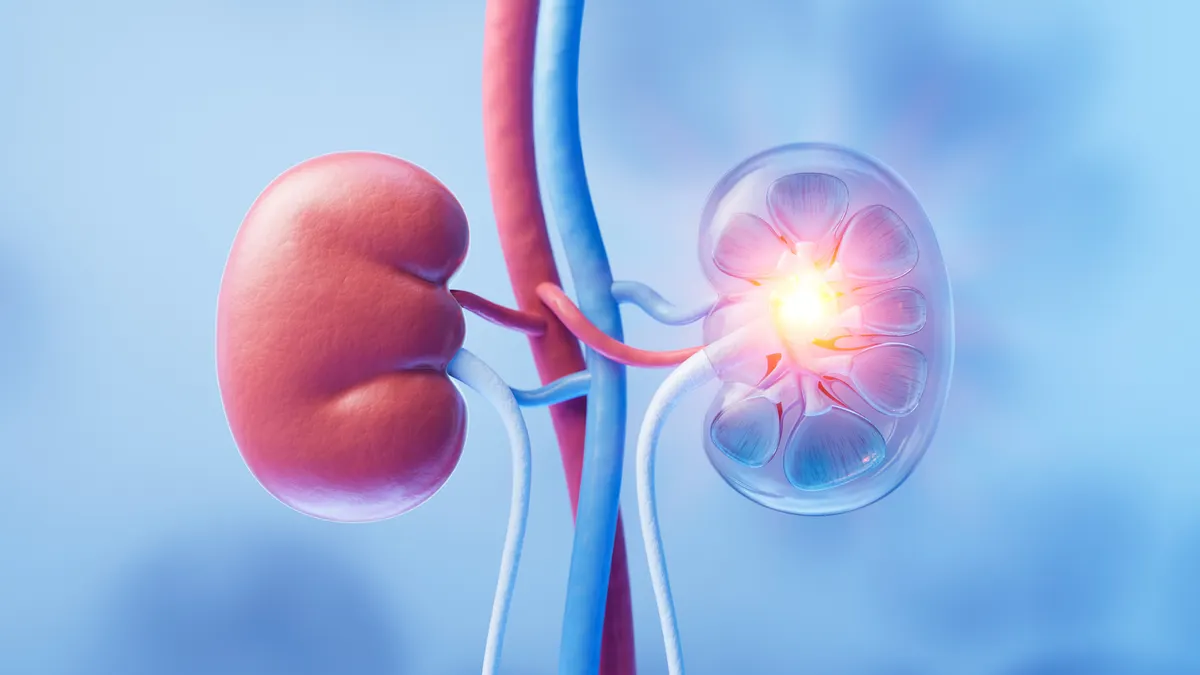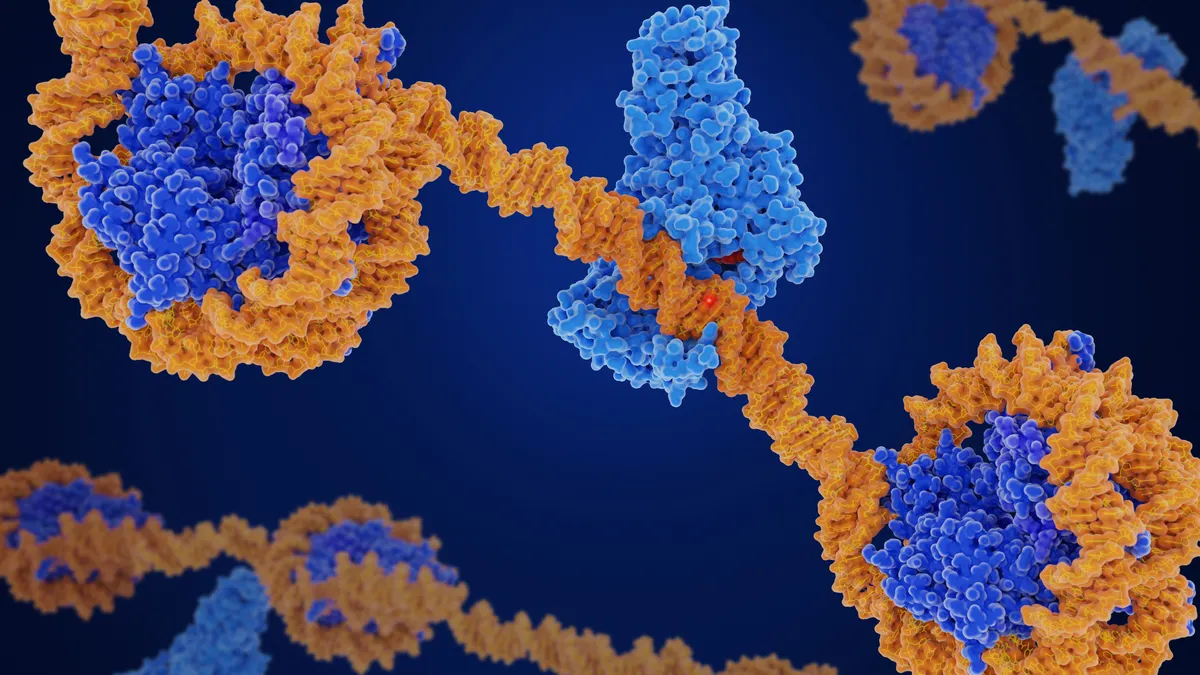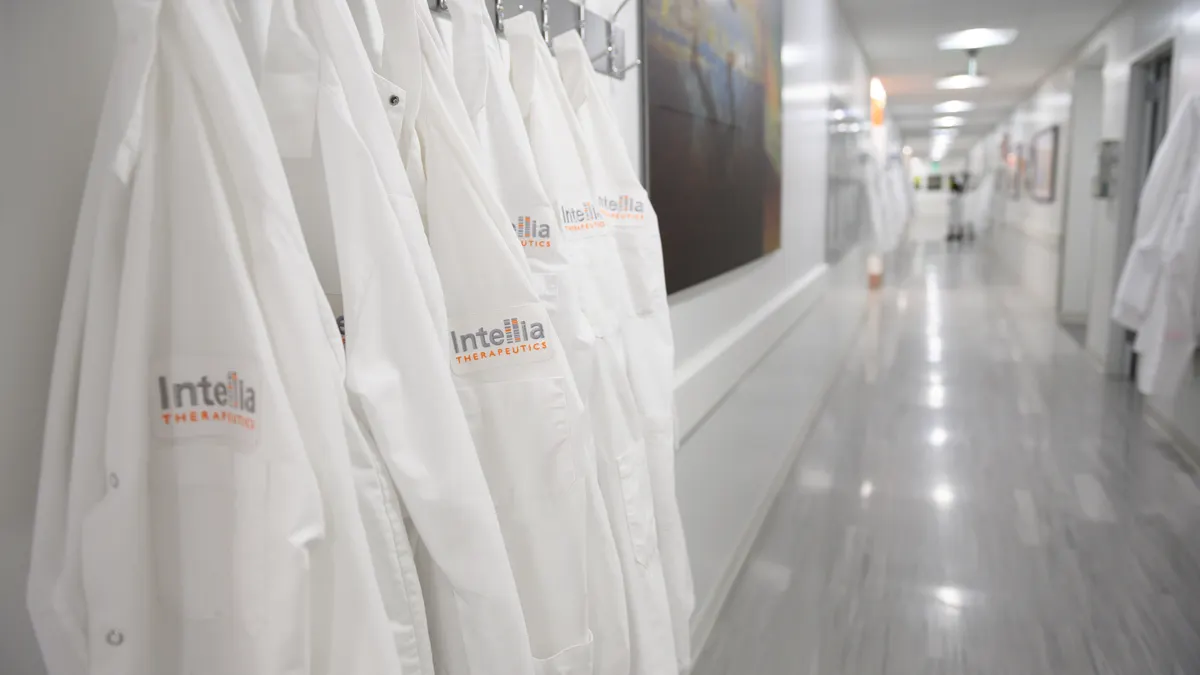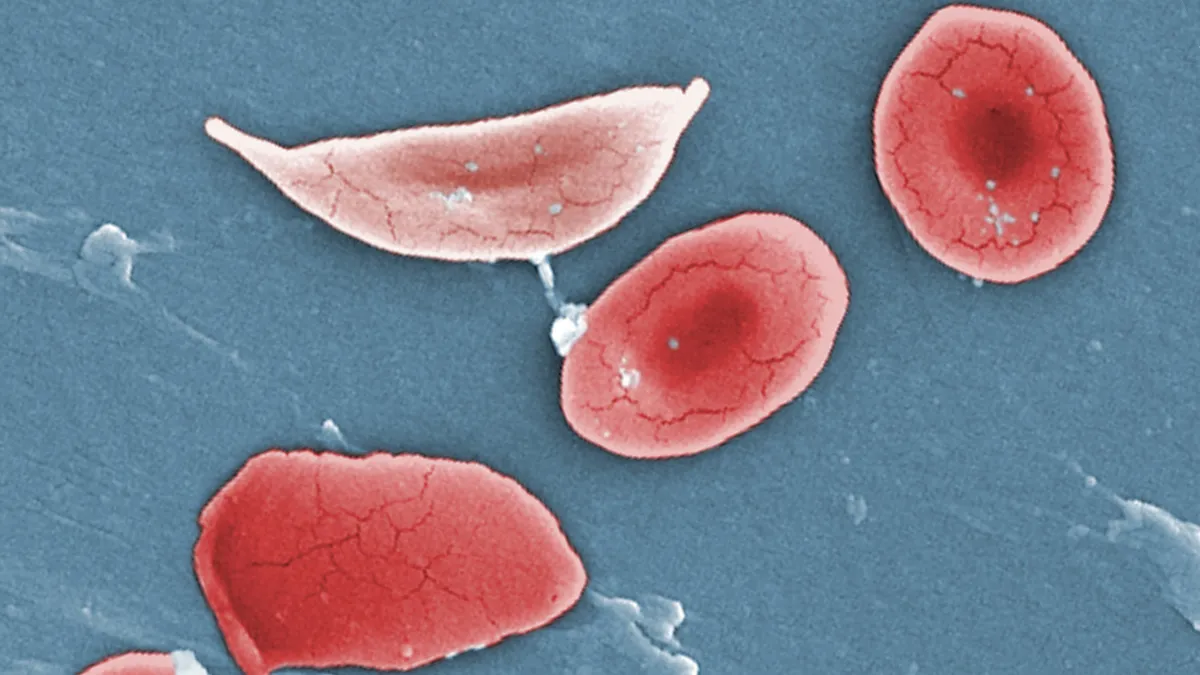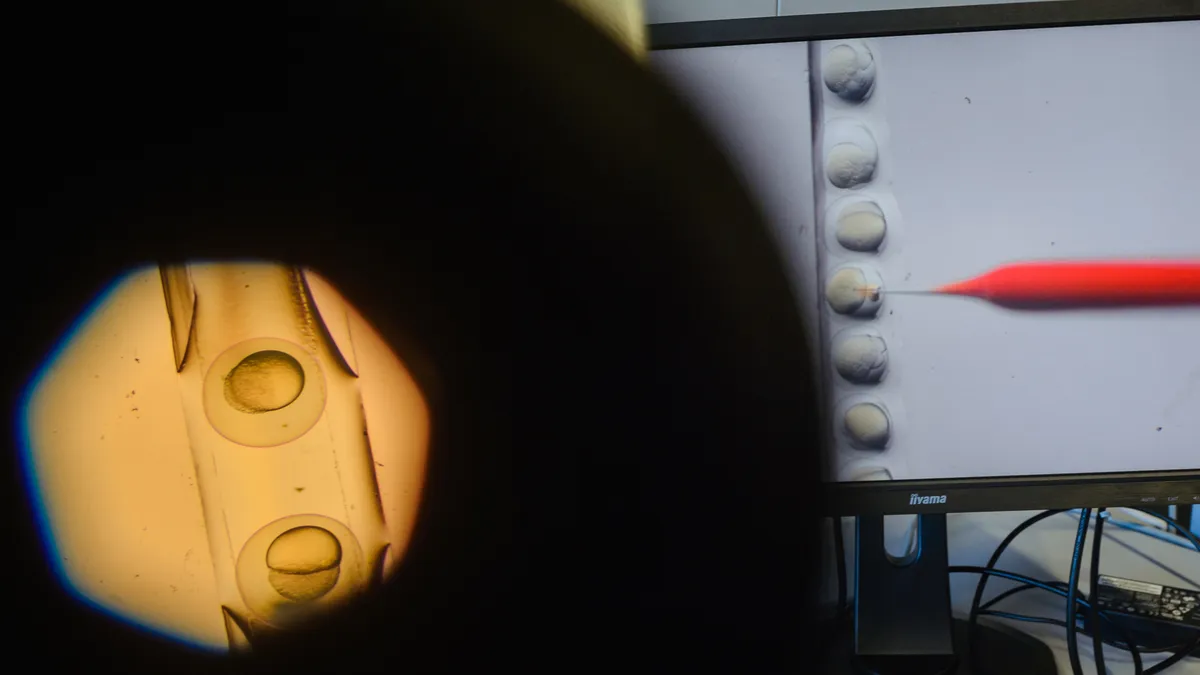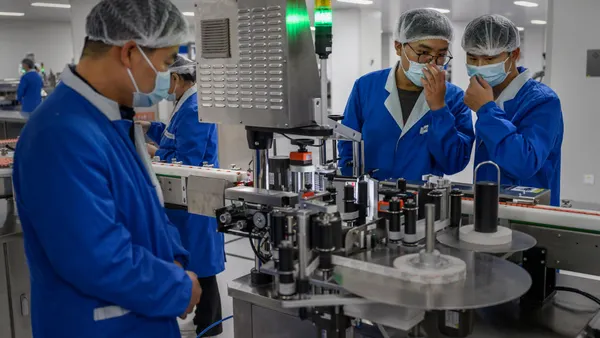Dive Brief:
- Shares of Intellia Therapeutics lost nearly half their value Monday a serious safety event led the company to temporarily pause a pair of Phase 3 trials testing its gene-editing drug against the rare disease transthyretin amyloidosis.
- Intellia said it has stopped enrollment and dosing in both late-stage studies of the therapy, codenamed nexiguran ziclumeran or nex-z, while it works on new measures to ensure patient safety. The company plans to consult with regulators and independent experts to “develop a strategy to resume enrollment as soon as appropriate,” CEO John Leonard said in the statement.
- The enrollee, a man in his 80s and treated on Sept. 30, on Friday experienced a “grade 4” spike in liver enzymes that were concerning enough to require hospitalization. Prior to the stoppage, Intellia had already enrolled more than 650 people with the cardiomyopathy form of transthyretin amyloidosis in one trial and 47 with the polyneuropathy form in its other study.
Dive Insight:
Intellia is developing a CRISPR-based treatment for transthyretin amyloidosis, a rare condition that causes misfolded clumps of protein to build up and potentially damage the heart or nerves. It’s hoping to prove a long-lasting gene editing treatment can become a powerful alternative to oral and injectable therapies that can slow disease progression.
But the availability of those therapies leaves Intellia with a high bar to clear, particularly when it comes to safety. And, since May, the company has now twice reported incidents of liver stress that were serious enough investigators judged them to be “grade 4” or, potentially life-threatening, adverse events.
The earlier case didn’t put a study volunteer in the hospital. This one did, because the patient had elevated liver enzymes as well as bilirubin, another warning sign of possible organ damage.
“While the pattern is similar, it appears that this patient has a more pronounced manifestation,” Leonard said on a Monday call with Wall Street analysts.
Intellia already preps patients for treatment with a regimen of steroids and other medicines that are meant to reduce the risk of an immune reaction. While working on new protective measures, one additional step it’s now taking is to order more frequent laboratory tests to detect any other instances of liver enzyme elevations.
The company is also working to find the culprit of the safety events, whether it’s the fatty bubble or “lipid nanoparticle” used to deliver the therapy or something else. These lipid nanoparticles have been known to cause modest spikes in liver enzymes, but Intellia doesn’t believe they’re to blame, given the latest incident occurred multiple weeks after treatment.
“This, we think is different from that, and as for the exact reason why that's occurring, we don't know that answer at this point,” he said. “Our current thinking is that that's most likely to be tied to the specific gene target.”
If the cause were to be a delayed response to the targeted gene, it “would be concerning for nex-z,” but likely wouldn’t impact Intellia’s other treatments, Leerink Partners analyst Mani Foroohar wrote in a note to clients.



